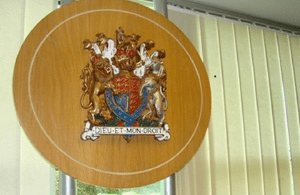 A Dorset operator had its operations severely curtailed earlier this year as a result of significant failures to maintain its fleet along with questions over the legality of its operation
A Dorset operator had its operations severely curtailed earlier this year as a result of significant failures to maintain its fleet along with questions over the legality of its operation
In March 2023, Traffic Commissioner Kevin Rooney issued his written decision in the case of North Dorset Community Accessible Transport (NORDCAT), a limited company which is also a registered charity, and its wholly owned subsidiary Nordcat Services.
The operator, which operated under a ‘limited’ minibus permit exemption, was called to a preliminary hearing in November 2020 following a DVSA maintenance investigation which found systems lacking. At that hearing, the TC identified that the operator was involved in a substantial home-to-school contract that seemed to form potentially a significant part of the operation, and urged it to take legal advice. The maintenance concerns were addressed by statements of intent that, were the company a holder of a PSV operator’s licence, would normally be recorded formally on the licence; no such facility exists for minibus permit operations.
The TC heard that a decelerometer had been purchased and would be used at every inspection thereafter, that the operator’s general manager, a Ms Reed, would attend a passenger operator licence awareness course and that the apprenticed technician would undergo relevant training on inspection procedures.
Maintenance investigation
DVSA Vehicle Examiner (VE) John Foster conducted a maintenance investigation on 9 August 2022 and found no evidence of a safety defect and recall system; no evidence of brake tests completed at PMI; it was difficult to establish how effective driver defect reporting system was; an MOT failure rate of 76.6% and vehicles presented for test with obvious failure items; an ineffective system of wheel security and tyre management; a prohibition received at annual test for several defects on DY07 OBL; and that it was unclear who makes the decision to take a vehicle out of service.
[…]By subscribing you will benefit from:
- Operator & Supplier Profiles
- Face-to-Face Interviews
- Lastest News
- Test Drives and Reviews
- Legal Updates
- Route Focus
- Industry Insider Opinions
- Passenger Perspective
- Vehicle Launches
- and much more!


